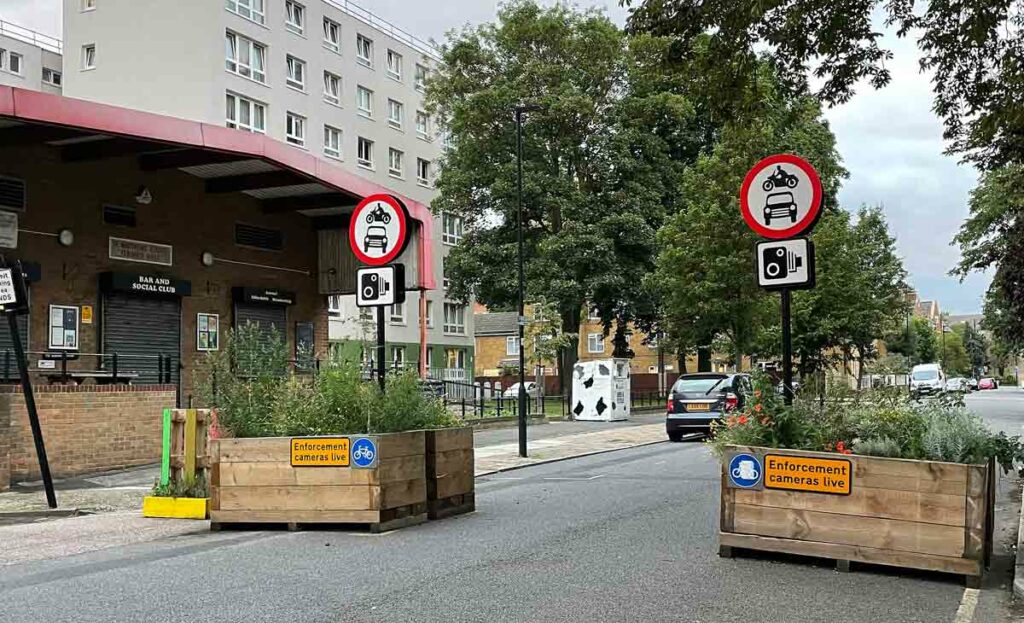
Lambeth council is to recommend that the Oval to Stockwell and Railton and St. Matthew’s low traffic neighbourhoods (LTNs) are made permanent.
This follows consultations in which small majorities backed the LTNs.
There will be exceptions for Blue Badge holders, taxis and fully accessible private hire vehicles, and rapid response healthcare providers.
The council says its recommendations are based on “detailed impact analysis and extensive consultation”.
It said today (12 December) that “substantial improvements” to the two areas are also proposed.
These include sustainable drainage to combat flooding and green areas along the routes as part of the council’s response to the climate crisis.
Both schemes were introduced as urgent temporary measures at the start of the pandemic.
In plans made before the outbreak of Covid, the council was expecting a three-year timescale for the introduction of LTNs and other measures.
But guidance issued by the Secretary of State for Transport in May 2020 said that a “once in a generation opportunity” had arisen to “deliver a lasting transformative change in how we make short journeys in our towns and cities”.
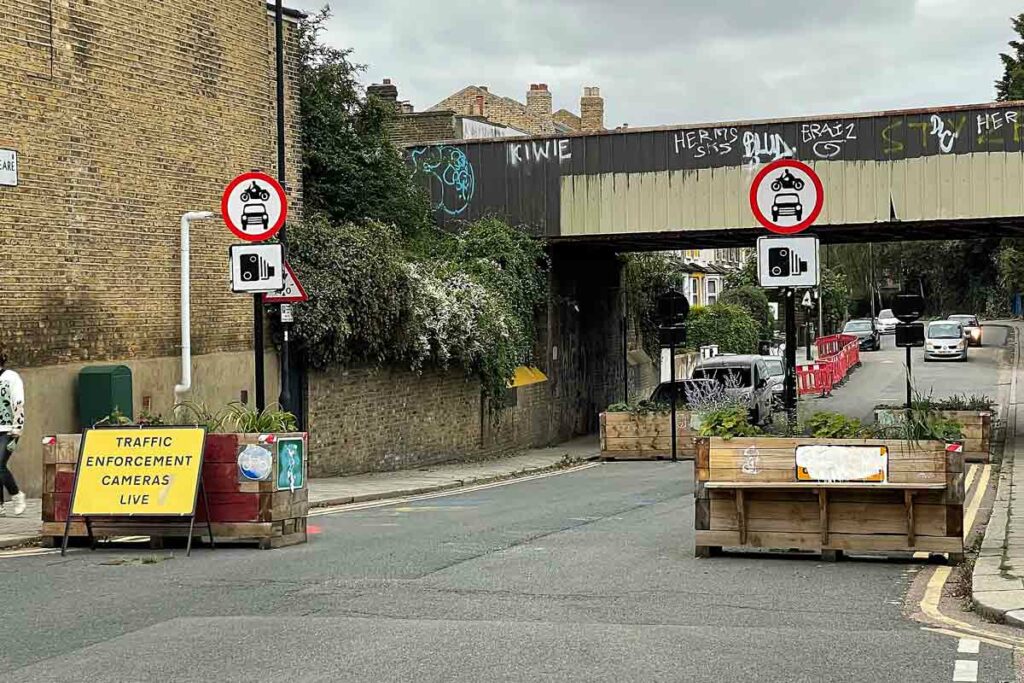
It concluded: “The government therefore expects local authorities to make significant changes to their road layouts to give more space to cyclists and pedestrians”.
The government said: “Measures should be taken as swiftly as possible, and in any event within weeks.”
Lambeth’s LTNs are designed to reduce through traffic, reduce vehicle speeds and lessen road danger, at the same time as improving air quality and enabling more walking and cycling.
In June this year, the High Court rejected a legal challenge to them.
The challenge was funded to the tune of £35,000 by the campaign group One Lambeth, which said it was considering an appeal.
However, there is no sign of one at present and its fundraising page has, to date, raised only half of the £14,500 it said was needed for an appeal.
There has also been a campaign of vandalism against the signs alerting drivers to LTNs and, only last Sunday, local MP Bell Ribeiro-Addy and Lambeth councillors heard vehement opposition to the effects of another local LTN in Streatham Hill.
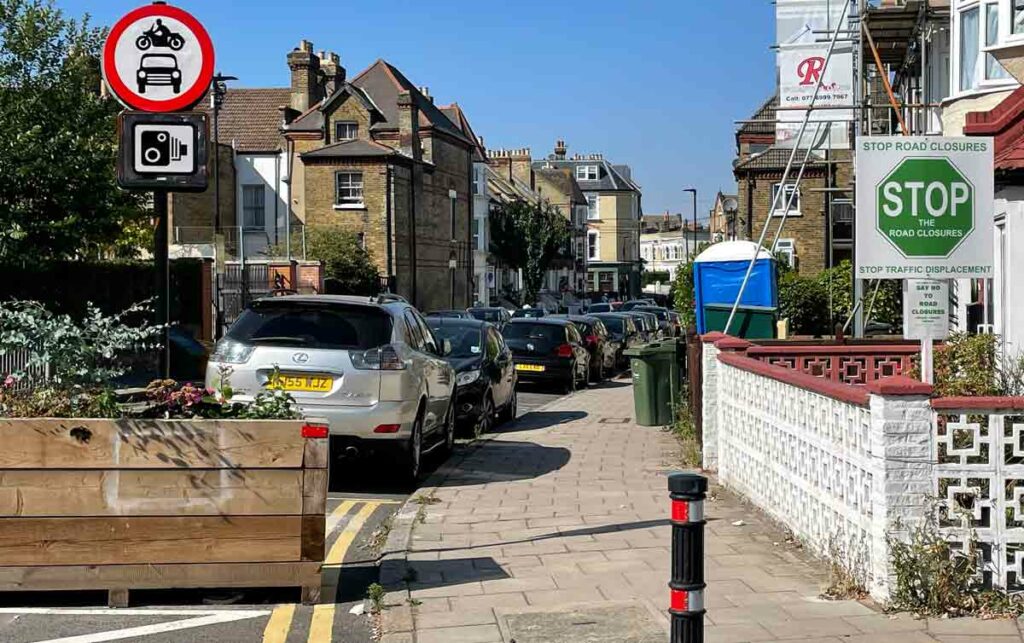
Among the charges laid against the council at this meeting was that its collection and analysis of data is biased in favour of LTNs.
The council said it had analysed data collected from in and around both the Oval and Railton LTNs before organising a public consultation in September.
There were 2,928 responses to the Railton consultation and 3,395 to the Oval to Stockwell consultation.
The council said data found that 55% of respondents thought the Oval to Stockwell LTN was a positive change, while 54% felt the Railton LTN was a positive change.
The proposals will now go through the council’s decision-making procedures, with a potential adoption date of 30 December.
The consultations asked people to suggest improvements to each area.
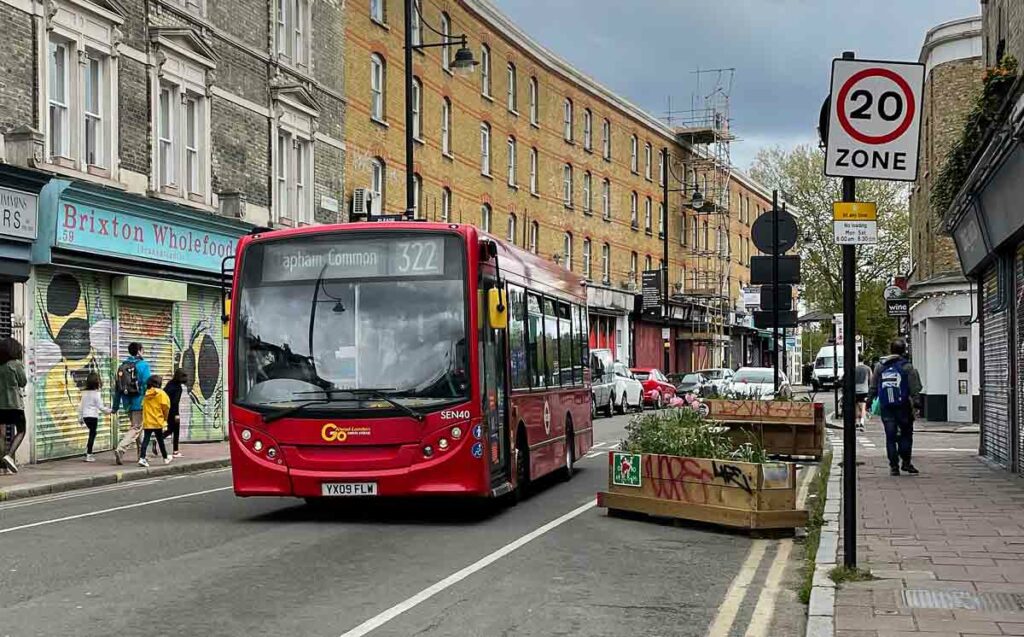
The most popular choices involved more trees and greenery; cycle, e-scooter and cargo bike storage; separate cycle lanes on the Oval to Stockwell LTN; and improved road surfaces in the Railton LTN.
Cllr Danny Adilypour, joint Lambeth council cabinet member for sustainable transport, environment and clean air, said: “Since both LTNs were introduced, we have been closely monitoring the data and speaking to residents and businesses to design streets that work for everyone.
“After considering both the data and public feedback, we believe this proposal to make these schemes permanent is the right thing to do as part of our drive to transform our neighbourhoods to make them safer places for people to move around and to ensure they are fit for the future.”
The proposals mean that infrastructure like planters installed during the experimental phase could become permanent features.
The council said that, after careful consideration of feedback, trip patterns, and impacts, the proposals include exceptions for Blue Badge holders who rely on driving, being driven or on visitors who arrive by car.
Exceptions are also proposed for taxis and fully accessible private hire vehicles, and rapid response healthcare providers.
This is in addition to emergency services and buses which were exempted from the start.
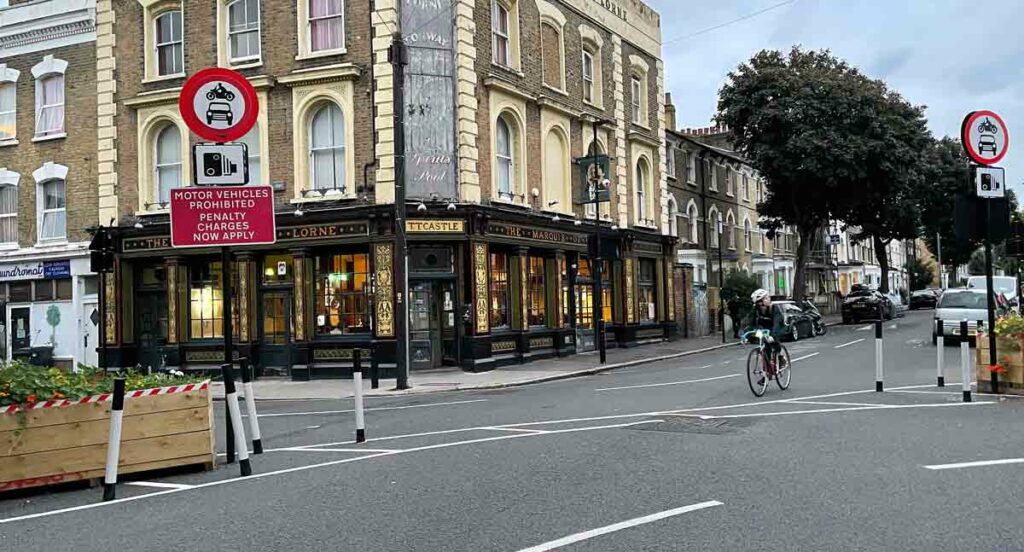
The council said monitoring data for Oval to Stockwell LTN and Railton LTN showed an overall increase in cycling rates, while “overall motor vehicle traffic across the LTNs and boundary roads combined” fell.
Lambeth was the first London borough to declare a climate emergency and respond with a plan to encourage healthier travel such as walking and cycling.
Cllr Adilypour said: “Residents in these neighbourhoods, and those that travel through them, have been able to experience what a future neighbourhood might look like, where all people are able to move around their local area safely.
“If we are to take meaningful steps to address the climate crisis, it is important to develop new, sustainable ways to travel.
“This was a key recommendation from Lambeth residents who took part in the council’s Citizens’ Assembly on the Climate Crisis.
“The proposed changes would build on this, enabling more people to travel more sustainably, while acknowledging feedback and with changes in place that reflect local needs.”
The council proposals are online:

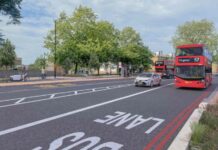
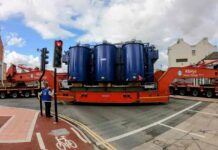




Brilliant, that’s so great to hear. The Railton one especially makes the area and road space enjoyable to hang out in, the bench planters show how road space can be used for so much more than just for cars to pass through to cut off some time off their journeys.
The Covid emergency linked to the LTN is that Lambeth had been given money for social distancing (in town centres) they decided to use on this experiment at really bad timing, as impossible to compare data and a time when people needed to drive. Then ignore any negative feedback and justify keeping the filters which are earning thousands with dubious data.
Literally most people are dissatisfied with the LTNs and yet they go ahead making em permanent